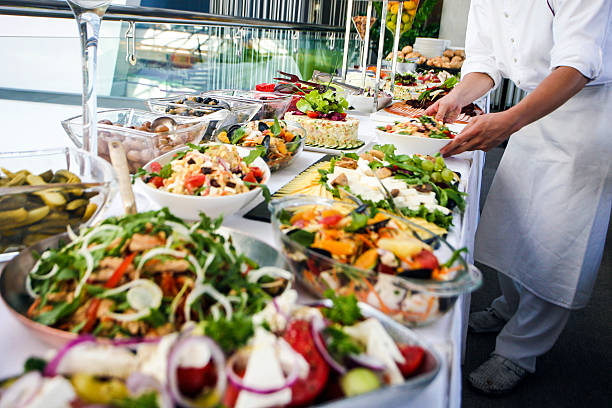Discover the dynamic role of a Catering Manager, where exceptional organizational skills meet culinary expertise. Catering Managers play a crucial role in planning and executing events that feature food and beverage service. This page delves into the responsibilities, essential skills, and the pathways to becoming a successful Catering Manager, showcasing how they bring culinary events to life.
What Does a Catering Manager Do?
The Catering Manager oversees all aspects of catering operations, typically within a hotel, event space, or independent catering company. Responsibilities include client consultation, menu planning, staff management, and coordinating logistics for events. They ensure that food and beverage services are executed flawlessly, adhering to both client expectations and budgetary constraints.
Skills and Expertise
Effective Catering Managers possess a blend of culinary knowledge, business acumen, and event planning skills. They need to be adept at multitasking, managing tight deadlines, and leading a team. Strong communication and customer service skills are essential for liaising with clients, vendors, and staff. Problem-solving and adaptability are also crucial in this dynamic environment.
Educational Path and Experience
Many Catering Managers start with a degree in hospitality management, culinary arts, or a related field. Visit our School Hub Page to get more information on education and find the best schools in your state. Hands-on experience in catering or event planning is invaluable. Progressing from roles such as catering assistant or event coordinator can provide practical knowledge and skills necessary for managing large-scale events.
Challenges and Rewards
Working as a Catering Manager is both challenging and rewarding. Challenges include managing complex logistics, meeting diverse client needs, and handling last-minute changes. However, the role offers the satisfaction of creating and delivering successful events, leading a team, and seeing clients enjoy memorable culinary experiences.
Career Opportunities and Growth
Catering Managers have various avenues for career advancement. Opportunities include moving into higher management roles within larger hospitality organizations, specializing in certain types of events, or even starting their own catering business. Continuous professional development and networking are key to advancing in this field.
How Much Does a Catering Manager Make?
The salary for Catering Managers can vary based on factors such as experience, location, and the size of the event or establishment they are managing. According to the U.S. Bureau of Labor Statistics, the median annual wage for food service managers, which includes Catering Managers, was $56,590 in May 2020. However, this figure can fluctuate significantly depending on the aforementioned variables. For a more detailed breakdown of salary ranges and statistical insights, it’s beneficial to consult the Bureau of Labor Statistics’ Occupational Employment and Wage Statistics for the latest data and trends in the industry. This valuable resource provides comprehensive information that can help both aspiring and established Catering Managers understand the financial landscape of their profession.

The role of a Catering Manager is at the heart of the event catering industry, combining elements of culinary arts, business management, and creative event planning. For those who thrive in a fast-paced, dynamic environment and have a passion for creating memorable culinary experiences, a career as a Catering Manager offers a fulfilling and exciting professional journey.















